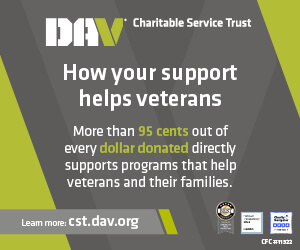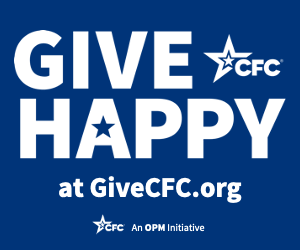One of the benefits of serving in the reserves is getting help to pay down debt, but the decision to join must be made carefully and for good reasons.
Here is one woman’s story, along with advice from an expert.
A future reservist’s story
When her son started getting calls from recruiters outlining the potential benefits of joining the reserves, Amanda Struck had a thought: Might that be an option for her, so she could finally pay down her school debt?
As it turns out, it was.
Struck, 39, a former Wisconsin politician, is in the process of joining the Army Reserve. She has about $80,000 in student debt, which she racked up as a single mother putting herself through school. Although she hasn’t signed her papers yet, she was told the Army would give her about $60,000, she said.

The Appleton, Wisconsin, resident served six years as a state representative until 2020. She now works for a nonprofit.
Struck said last fall, she was on the phone with a recruiter when she stopped him mid-sentence to ask what the minimum age was. He replied that at her age, a waiver could be obtained, she said.
Once she gathered all the information, she decided “pretty quickly,” she said.
RELATED: DOD program helps military-affiliated students save on school costs
“I left politics, the career I thought I was going to be in forever, and I was figuring out what I wanted to do,” she said. “I thought this was perfect: a way to pay down my debt and also find a new challenge for me.”
The process of joining, however, has been lengthier than expected, she said.
For one, the medical review is more extensive nowadays, particularly for older recruits. Also, initially she was told she couldn’t join as an officer, despite having a master’s degree in public administration. A second recruiter later said her degree did qualify, and she passed her interview with the OCS board in September, she said.
Struck has two sons, a 19-year-old and a 13-year-old. After borrowing money to earn her undergraduate and master’s degrees, she hadn’t been able to make a real dent in her debt for a decade, she said. She tried to apply for loan forgiveness but was turned down because she didn’t always make payments on time, she said.
“I don’t know that I will ever come out from under that unless I do something like this,” she said.
Struck said she never considered joining the military while growing up because she was too scared of leaving for unknown places.
“I think I would be a much better asset now as somebody older and more mature,” she said.
The lengthy process of joining the reserves has been a bit frustrating, and there are certainly potential risks to the job, Struck said, but she’s still looking forward to serving her community in a new way.
A primer on how it works
So how does paying down debt by joining the reserves work? Here is information and advice from Heather Walrath, education presenter and military benefits liaison for Navy Mutual.
Are there differences in paying down debt when joining different reserve branches?
Each service has separate criteria. Some signing bonuses are a lump sum, some are paid over monthly or yearly installments. The amounts also vary, depending on the needs of the service and its specific career fields. Eligibility for bonuses is constantly changing. Anyone interested need to be vigilant to research and find the current policy at the time that they join.
Are there specific kinds of debt that one can pay down?
You can use the money in any way you see fit — pay down student loans, credit cards, mortgages or build up a savings account. However, signing bonuses are taxable. Depending on the person’s total income, that could push you into a higher tax bracket. Keep in mind that getting the money could also lead to more debt, for example, if you use it to buy a car. You need to be committed to having a plan for that money and resist the temptation to spend it. There are some specific programs that offer student loan repayments, with specific parameters for repayment to student loan accounts, but they are not offered by all services or for all career fields. Joining the reserves also gives you access to personal financial counselors for free, so that’s another avenue to help you pay down your debt.
Are there “best” candidates to pay down debt through the reserves? \
Someone who has a desire to serve their country and would be prepared to deploy when ordered. That being said, service can come with some financial incentives, especially during deployment, where you might have the ability to earn tax-free income and other deployment benefits, such as the Savings Deposit Program. The reserves also provide access to health care. A single person might be more likely to consider joining, as opposed to a married person, due to the possibility of deployments.
What happens if you quit the reserves before the end of your contract/commitment. Do you have to give back the money?
It depends on the service and the contract under which the bonus was awarded. However, in most cases the signing bonus is going to have to be repaid, at least partially. That’s one reason the bonus might be paid over several months or years, to make sure the person can complete their commitment. Keep in mind, in most cases you cannot “quit” your commitment. If you don’t make it through training, they may switch you to another career field that does not have a bonus. Or, depending on the situation, a discharge other than honorable could have consequences, including financial.
Should people consider joining the reserves solely to pay down debt?
Absolutely not. Joining the reserves should be done because a person has a desire to serve. The reality is that you will likely be called to deploy, at least at some point, and when those orders are issued you cannot say, ‘No.’ When you deploy, you may be away from your family for a long period which can lead to more costs (child care help for the stay-at-home parent, car storage, pet care, etc.). Someone with a family might also consider buying life insurance, in addition to the one offered by the military, so that’s another expense to consider. Also, while your civilian employer has to re-employ you under the Uniformed Services Employment and Reemployment Rights Act, you may make less money while you are deployed, based on your rank and pay grade. (Of course, you could also make more, based on your circumstances). When people join the reserves, they should consider using any signing bonus to build up their savings in case they need to supplement their income when deployed. It’s important to note that under the Servicemembers Civil Relief Act, when you’re activated, the interest on any existing loans you have, like your car payment, is reduced to 6%. The idea is that your military service should not be a financial detriment to you.
What other options can people consider to repay debt?
There are many nonprofit consumer counseling services that people can work with. Also, many cooperative extension programs have personal finance classes, as well as online resources available from the federal government that can assist with creating a spending and debt repayment plan. Employers might offer financial counseling or education programs for their employees.
















































